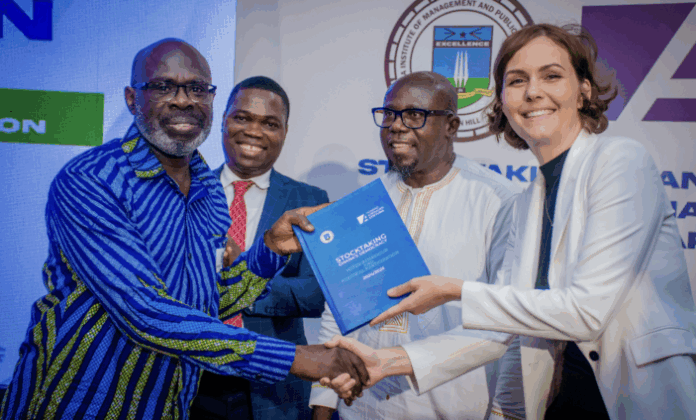A new survey suggests that Ghanaian voters favour a 2028 presidential contest between Vice President Naana Jane Opoku-Agyemang and Former Vice President Dr. Mahamudu Bawumia.
The survey, jointly conducted by the Ghana Institute of Management and Public Administration (GIMPA) and the Konrad-Adenauer-Stiftung (KAS), a German political foundation, explored voter behaviour in the 2024 elections and succession preferences within the National Democratic Congress (NDC) and the New Patriotic Party (NPP).
Researchers sampled 16,988 respondents across all 16 regions, with a majority of participants being traders, artisans, and farmers.
Among NDC supporters, Prof Opoku-Agyemang emerged as the leading potential successor to former President John Mahama, with 35.5 per cent of respondents naming her the most suitable candidate. She was followed by Haruna Iddrisu (14.9%), Samuel Okudzeto Ablakwa (10.2%), Johnson Asiedu Nketia (8.3%), and Julius Debrah (2.2%).
However, 25.6 per cent of NDC respondents indicated they were unsure who should lead the party into the 2028 elections.
For the NPP, the survey pointed to a likely showdown between Dr Bawumia and Assin Central MP Kennedy Agyapong. Dr Bawumia led with 49.3 per cent support, while Mr Agyapong followed with 24.6 per cent. Other candidates mentioned were Dr Yaw Osei Adutwum (2.6%), Dr Bryan Acheampong (0.8%), and Boakye Agyarko (0.6%). Additionally, 21 per cent of NPP respondents said they did not know who should lead the party.
While the study found voter intent for the 2028 election remains high, it also noted early signs of declining enthusiasm compared to previous elections.
On the motivations behind voter choices in 2024, the report found that 73 per cent were influenced by party manifestos, while 46.2 per cent based their decision on the likeability of presidential aspirants.
Dr Joseph A. Darmoe, Director of Programmes at KAS and a Senior Lecturer at GIMPA, said the data indicates a shift from rigid party loyalty to issue-based voting.
“Voters are moderately moving away from strong party affiliation… Party manifestoes are as critical as your campaign expenditure,” he noted.
Mrs Anna Lena Sabroso Wasserfall, Country Representative of KAS, said the study was designed as a resource for political parties, civil society, researchers, journalists, policymakers, and engaged citizens.
“Our motivation to carry out this study and to make an additional contribution to empirical political discourse in Ghana derives from our self-understanding as a political foundation,” she explained.
ALSO READ:



